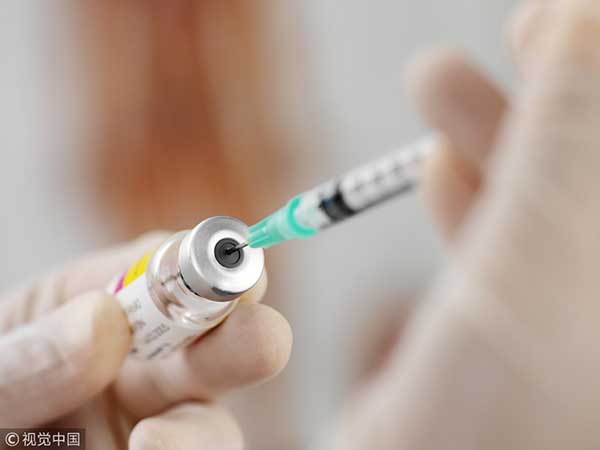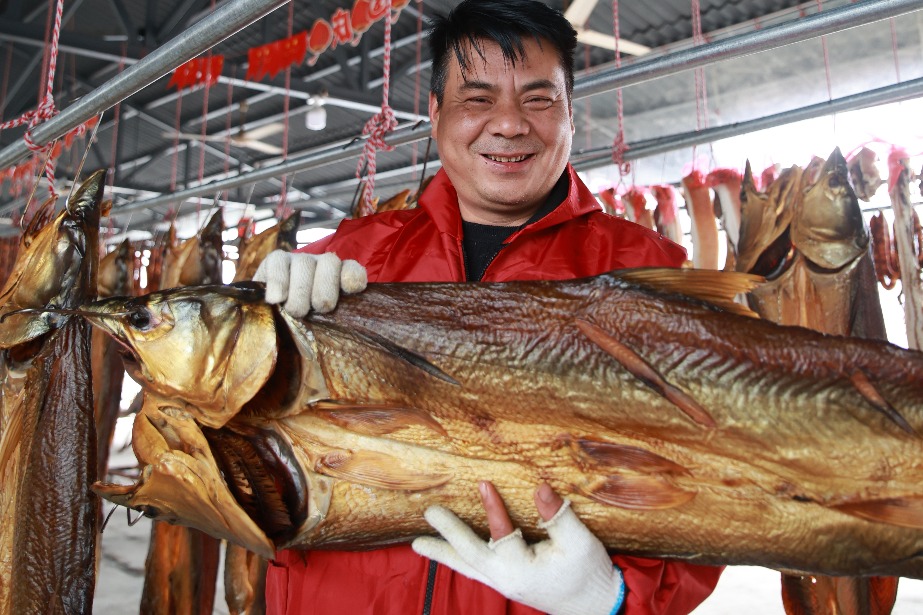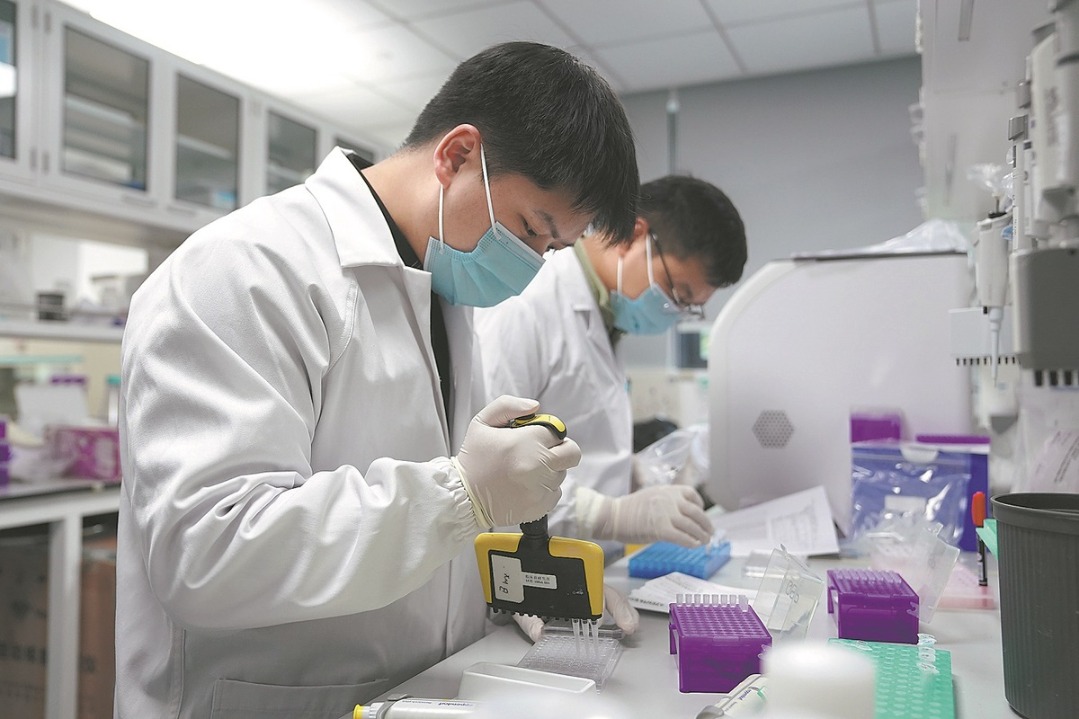Protein found in human body could inhibit progress of HIV


Chinese researchers say further work is necessary before clinical trial possible
Chinese scientists have identified a new protein that restricts HIV infection, a discovery that could pave the way for the development of new drugs against the virus.
The protein, P-selectin glycoprotein ligand 1 (PSGL-1), which exists in human cells, can inhibit the process by which HIV replicates, according to research published in the science journal Nature Microbiology this month.
However, the study also showed that PSGL-1 can be negatively affected by Vpu-an accessory protein of HIV-which can neutralize the ability of PSGL-1 to resist HIV.
Further research is underway to develop a drug that can inhibit the HIV protein so that PSGL-1 can restrict HIV, according to Tan Xu, a researcher at Tsinghua University's School of Pharmaceutical Sciences, a leading author of the study.
Several other proteins in human cells that could resist HIV have been discovered over the past 10 years, though the virus can also evade them.
PSGL-1 shows particular promise in that it can inhibit the HIV in multiple ways-especially by blocking the infectiousness of virus offspring, Tan said.
"We are starting to screen for small molecule compounds in the hope of finding one that can restore PSGL-1's anti-HIV function. In this way we can develop a very effective antiviral drug for people with HIV/AIDS," he said.
Tan said it will require at least three to five years for the research to reach the preclinical stage, and more time after that before a clinical trial is possible.
The research was conducted by researchers at Tsinghua University in Beijing, Fudan University in Shanghai and George Mason University in the United States.
Existing treatment methods for people with HIV/AIDS, which mostly rely on a combination of different drugs, can prevent the disease from progressing but cannot cure it, and long-term use of drugs can result in drug resistance. The study provides new leads to developing antiviral drugs, Tsinghua University said in a statement.
An estimated 37 million people in the world live with HIV, according to the Joint United Nations Programme on HIV/AIDS.
In China, around 1.25 million people are infected, and there are about 80,000 new cases a year, according to the National Health Commission.
Although HIV/AIDS cannot currently be cured, many patients infected with the virus can live mostly normal lives with anti-viral treatment that suppresses the virus to keep it at a low level.
Tan said intensive research efforts are being carried out worldwide to find a cure, but many challenges remain.
"A major difficulty in the research is that HIV mutates very quickly and develops resistance to existing drugs," he said. "It also easily evades the human immune system, which is why developing a vaccine against the virus is so difficult."

- Lantern Festival lights bring the Dunhuang grottoes to life
- China's 2026 Spring Festival travel rush to begin
- Knocking on the stone-framed door
- Shanghai Science and Technology Museum to reopen soon
- Shanghai celebrates Spring Festival with intl students
- Pegasus fondant artwork ushers in Year of the Horse in Shanghai




































